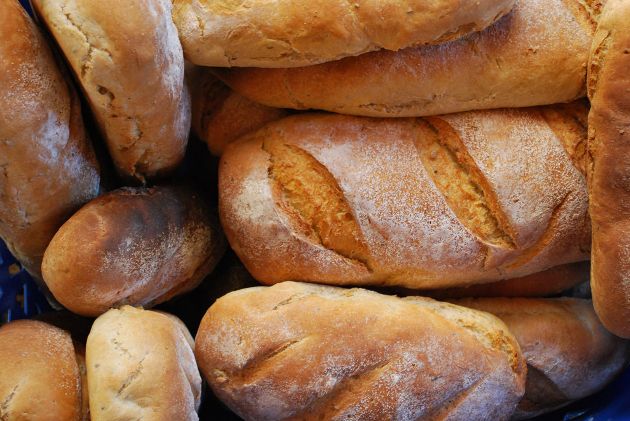Our daily bread

Sometimes it is the simplest acts that touch us most. In our overloaded lives, where information comes at us faster than we can absorb it and there is a surplus of mistrust and rancour, moments of genuineness stand out. We cling to them in the hope that they are what is true about our world rather than the negativity that threatens to sweep us away.
That is why Dionysis Arvanitakis, the baker of Kos who died on Sunday, made such an impression on us. He became the focus of global attention for giving away freshly-baked bread and other products to hundreds of refugees on the Aegean island when the migration crisis was in full flow. It was a simple, kind gesture amid so much desperation and cynicism.
Arvanitakis explained that his decision was prompted by seeing the same hunger and fear in the eyes of the refugees that he experienced when he emigrated to Australia and had to start a new life with nothing.
“Which person can remain unmoved when they see a small child eating soil?” he told Ethnos newspaper in 2016. “Without any reservations or second thoughts, I told myself that I would make bread every day and take it to them.
“Anyone who hasn’t felt hunger in their life cannot put themselves in the position of these people. Refugees… us and them on the same island – parallel lives that converge on what it means to be a human.”
This use of personal memory to augment the compelling values that clearly existed within him make Arvanitakis’s reactions similar to those of other islanders who used what little they had at their disposal to help refugees. It earned the people of Lesvos, including Maritsa Mavrapidou who also died recently, a nomination for the Nobel Peace Prize in 2016, while Arvanitakis was awarded a Civil Society Prize by the European Economic and Social Committee in the same year.
The example they set is far more important than the awards they won or plaudits they earned. While much of Europe asked itself whether it could cope with more refugees, Arvanitakis was one of those who felt he could not remain a by-stander.
Clearly, those who were on the frontline in the islands did not have to worry about opinion polls and political constituencies like European policymakers did. But theirs were also political acts, showing us that in a crisis the first (and least) we should do is extend a helping hand to fellow human beings and treat them with the care and dignity we would hope for if in their situation.
On a more local level, Arvanitakis reminded us that away from the incompetence and greed of the political system, genuine kindness and courage can be found in Greece. The allegations regarding misused funds, mouldy meals and the despicable conditions at some of the refugee centres contrasts starkly with the gleaming pureness of the Kos baker getting up before dawn to bake bread for those in need.
The news of his death came on the same day that the local media revelled over stories about a minister being granted loans worth 100,000 euros from a faltering bank that is under investigation and alleged off-shore funding for a leading weekly newspaper and the wife of the opposition leader. Only days earlier, a former PASOK official had given testimony about the alleged payments that the socialist party received from the Greek branch of German giant Siemens and other major firms in the build-up to the 2000 elections, when – according to his account – the socialists went about spending huge amounts of cash on hiring planes, ferries and buses to get their voters to the polling stations.
In our grim reality, Arvanitakis’s actions provided us with moral sustenance. He did not just feed needy refugees on Kos, he gave all of us our daily bread, as we continue to forgive those who trespass against us.
1 Comment(s)
-
Posted by:
Maybe it´s because :
Bakers work with the most important commodity of this earth and have - if it goes well - the traction not lost
 Can the Green Transition be just?
Can the Green Transition be just? Podcast - How much is Greece getting out of the RRF?
Podcast - How much is Greece getting out of the RRF? Where is Greek growth coming from?
Where is Greek growth coming from? Bravo, Bank of Greece
Bravo, Bank of Greece